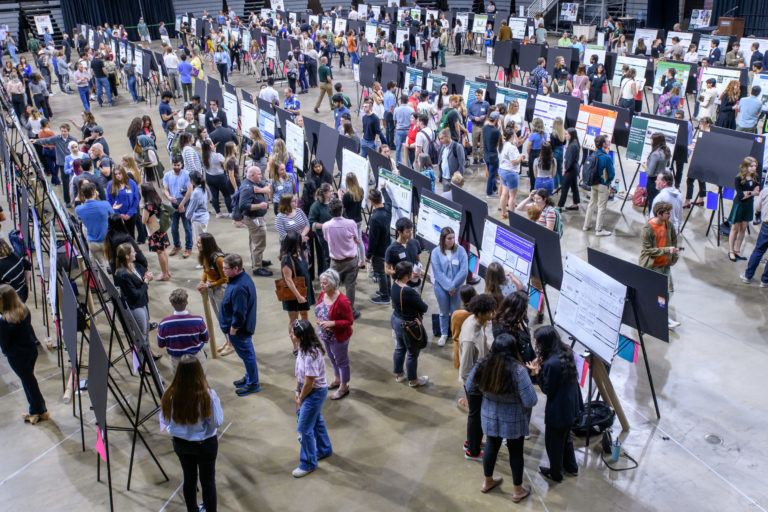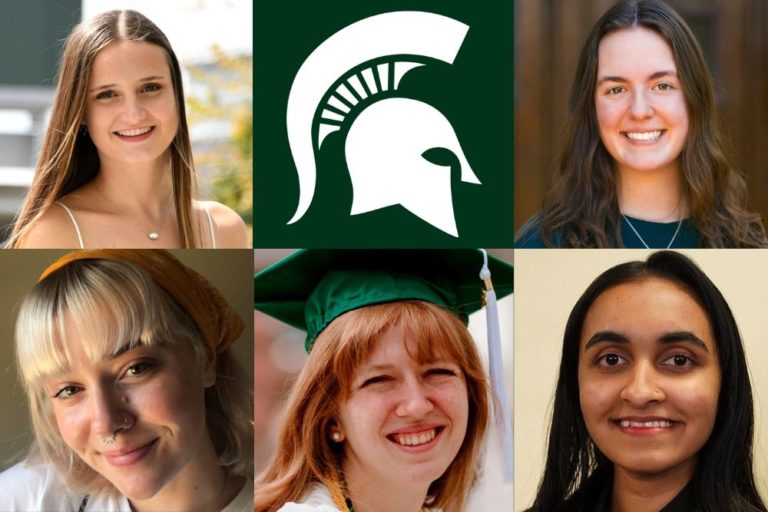
As the war in Syria continues to turn out more refugees each day and the number of people forcibly displaced by war, violence and persecution soars to a global all-time high, MSU’s Department of Linguistics & Germanic, Slavic, Asian, and African Languages is hosting a symposium to discuss the issues surrounding the refugee crisis.
The MSU Refugee Symposium, scheduled for April 1 and 2, will bring the Michigan State University campus and local community together in an effort to illuminate the complexity of this issue.
The global nature of the problem requires an innovative and interdisciplinary approach.
JOHANNA SCHUSTER-CRAIG
“As a land-grant public university, we have a responsibility both to educate our communities about the political and humanitarian themes that are global concerns as well as the effects these concerns have on our local community,” said Johanna Schuster-Craig, assistant professor of German and Global Studies, who is helping organize the event. “The conference won’t provide solutions to policy makers, but we can start a conversation within our own communities that we hope will continue in the future with later events.”
The symposium is organized around these main questions:
- How do we count? Refugees, aid packages, and other data about public health and behaviors are quantified. Frontex, the European border agency, has admitted to counting refugees twice. Turkey has negotiated a billion-dollar aid deal to seal its borders. What responsibilities do we have to quantify correctly, and what tools are available to visualize this data?
- How do we govern? The Schengen Agreement and Dublin III-Regulations that process refugees within Europe and permit free travel have ceased to function. What political changes await the European Union as various member states police their borders? How will new policies about refugee toleration affect citizenship laws? What role will Germany play on the European stage? What role will North America play in this crisis?
- How do we imagine? Traumatic experiences disrupt lives and psyches. How will we reimagine not only the global order, but the possibilities available to refugees after trauma?
Because of the diversity found within the College of Arts & Letters’ Department of Linguistics & Germanic, Slavic, Asian, and African Languages, Schuster-Craig said the department is well-positioned to examine these issues and collaborate across the MSU campus and community.
Some of the symposium speakers include Herbert Quelle, Consul General of Germany; Demetrios G. Papademetriou, President of the Migration Policy Institute – Europe; Salam Darwaza, a documentary filmmaker with humanitarian goals for refugee policy; MSU scholars in many disciplines, including Sociology, German Studies, Turkish Studies, and Psychiatry; and representatives from the local Muslim community.
“The global nature of the problem requires an innovative and interdisciplinary approach,” Schuster-Craig said. “And, given the statements of many governors, including Gov. Snyder, who want to prevent or delay the resettlement of Syrian refugees in the United States due to fears about terrorism, we have a responsibility to bring together scholars working on these topics to discuss best practices, evaluate data and engage with issues of concern.”
This event is being supported by MSU’s Office of the Vice President for Research and Graduate Studies, the Muslim Studies Program, and the Center for European, Russian and Eurasian Studies.
The symposium is free, but registration is suggested. For more information, including a schedule of events, or to register, see the Refugee Symposium website.


